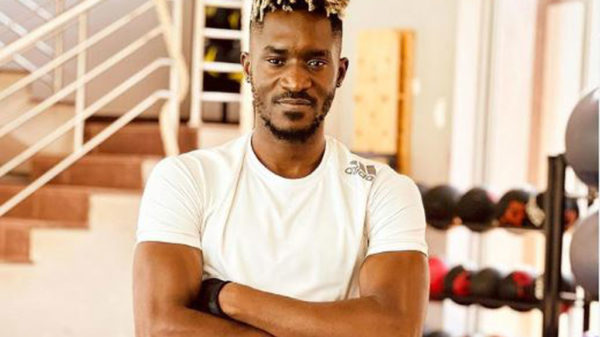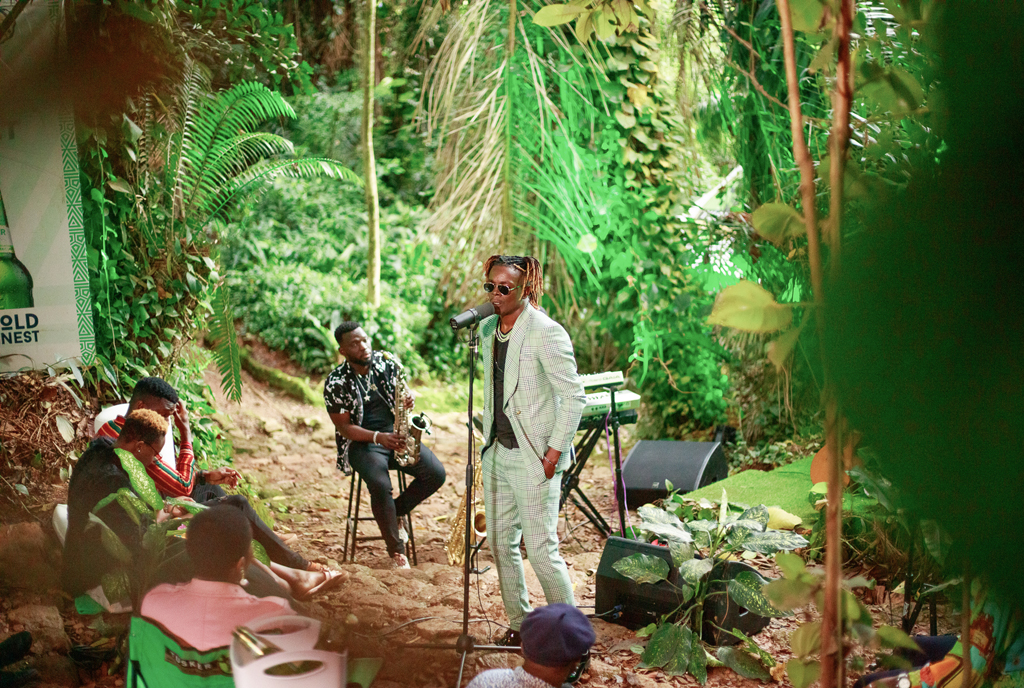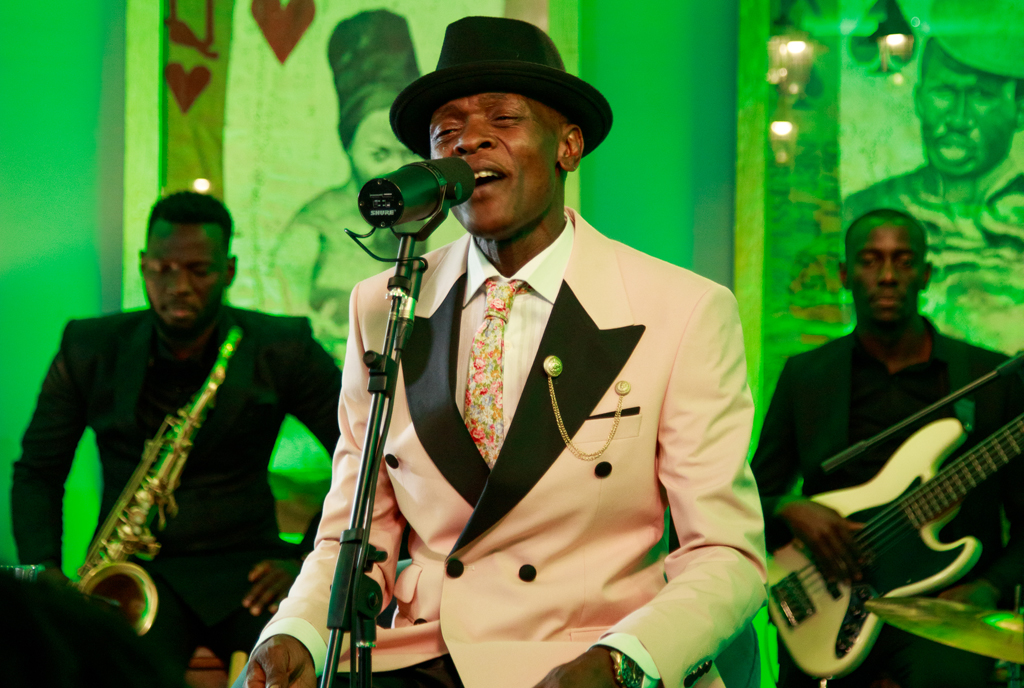Real Talk: Often celebrities make news and yet often times, they do not get a chance to tell their side of the story. On October 3, 2021, the first episode of the Tusker Malt Conver-Sessions kicked off with Winnie Nwagi getting a chance to speak her truth. The six-episode season of the conver-sessions closed recently with Chameleone and now Ian Ortega recaps.
Winnie Nwagi:
The musical cheetah
The scariest thing about Winnie Nwagi is that she has no skeletons in her closet. You do not expect to meet another Winnie Nwagi. She will always be Nwagi, at day, at night, inside, outside. Yet, also not said about Nwagi is that she is a Cheetah at rest. Her energy is ever peaked, never down, she is a fire that never burns out.
Imagine then to contain all this energy in an indoor setup and then ask it to sit on its laurels. Perhaps the indoor session was to bring us into the ‘calm’ side of Nwagi. But trust Nwagi to be betrayed by her fire.
She brings us into her world by hinting on the maid saga. She has no kind words for the maids; “They are so ungrateful!” In her world, she is yet to find a good maid. And with this blunt assertion, she opens her performance with Show Me. For Nwagi, the song sets the mood for who she is and what you can always expect from her. True colours!
She then breaks into Musawo. It is through this song that she found her breakthrough, it brought her into her element. For Nwagi is not just a singer, she is complete when she is both a singer and dancer. She teases us with her vocal prowess in Amaaso. When it comes to her fashion style that turns heads, Nwagi has no apologies. She is a revolutionary for the introduction of ‘Thick into Music Videos’. Women should flaunt their bodies, it is a symbol of liberation.
When she does Matala, you cannot help but marvel at the succinctness of the lyrics. There is something ethereal when a musician articulates their lyrics. Matala makes you wish there were evenings such as these in Kampala, the evenings would be redefined. The saxophonist goes to extremes with his rich overtones. And then Nwagi decides to crown the day with her folk magic. It is Sasi ku Nyama. At this point, one confirms that there is a Nwagi we missed by divorcing her from the dance. For there is no way in the world Nwagi should sing the lines; “Bend Down Shoot” while seated. Yet one notices attention to detail; the beer bottle kept shifting levels throughout the video. If Nwagi proceeds with her folk music album, she will cement her place as the fire baby revolutionary.
GNL Zamba:
The greatest storyteller?
GNL Zamba rewrote hip hop in Uganda. He gave it its final abode. It was lost, it found a home. You need no further evidence that hip hop was born in Africa. It was born by the fireplace. GNL Zamba’s soul has travelled into that past and replays the scenes for us. At that Fireplace University, the poets, the philosophers, all the storytellers created the world with their words. Those words were musical. Koyi Koyi is one of Uganda’s greatest music albums of all time and GNL Zamba blessed us with this.
Hip hop lived in society, it was not divorced from its realities. It was about the pain, the beauties, the warnings, the prophecies, the happiness. That is what GNL Zamba does with his opening act; he riddles, he rejuvenates the Pharaohs in us. His hypeman is another vibe, he is an eight-valence electron. This was the fullest of conversations, it requires no defence. Want to know about the Bachwezi? This is the ultimate performance. I guess, this is a performance that raises consciousness, you listen to it, and you cannot help but see yourself somewhere finding the greatness in you. Do you want to get started on Ani Yali Amanyi? In Luka, he preaches about HIV/Aids and the stigma. He is an entertainer, a rapper, a storyteller, he is everything in which all the musical virtues find unity.
Naava Grey:
The holes in our hearts
You move from Nwagi, and then you hear knocks on your soul and spirit. Naava is the woman making those knocks, the musical Dostoevsky of our age. Conver-sessions with Naava are psychedelic, they send you on a deep search, for the things we cannot touch, nor describe; the affairs of the heart.
A girl from a Muslim family, she has lived all the lives; polygamy, single mother, heartbreak. Naava is here to talk, to show you all the scars, all the wounds, in the hope that as you see hers, you heal yours. In Ninga Omuloge, she is proof that even at the worst of heartbreaks, love transcends undefiled, unscarred. Naava’s words sting, for they shine a light into the holes in our hearts. We have all been bored, lost, and yet scared to jump off cliffs. She is fully Ubuntu with Soka Lami. In Aliba Omu, she speaks of the Agape love, the ideals, the purest in form. She reunites us with promises in Nja Kwagala. It is the most candid, and deepest of conversations. She is teary, she takes you on a trip into your own soul.
Allan Toniks:
The campus dream sold
There is a group of Ugandans who when they watched Beera Nange, they dreamed of the far lands, the university, aka campus world, where all freedoms would be tapped. Toniks was the perfect representation of a campus life. The dudes in SHACK needed no better motivation to aim for university than the Beera Nange music video.
Many years later, Allan Toniks opens his session with this song. The episode is about vibes on vibes. Nothing high, nothing low, just the vibes of love. “When people don’t have an answer, they speculate,” Toniks gives you a salacious glimpse into his times with Lilian, his collaborator in Beera Nange. The kind of love Toniks sings about is the kind in which you never sleep – it is the ideal. The kind where bees still produce honey. When he sings about love, you tend to think there are no heartbreaks. It is the Sunday Brunch kinda love. And that is evident as he sings about ‘Romance’ on a ‘Sunday’. The instrumentals are reminiscent of those at expensive dinner date setups. He accepts his naughty lovelife with a smiley emoji face. About depression, he pleads guilty for how he almost gets swallowed up by emptiness. And with My Miss, Toniks calls it a session.
King Saha:
King weedie? King singing?
The king is short of words, straight and concise. He addresses himself on the marijuana allegations. He skirts around the question, while confessing that he often tells his crew members to tone down. With his silky voice, you expect no less than a performance of a king.
Let’s say, this is the ‘bestest’ of locations for his conver-session – it was the first outdoor experiment. The largesse of the saxophonist is once again out to swim, this time in a forest. And in the forest, you start off with greetings; Hello Hello.
There is a demon in those lyrics smoothing out as King Saha is pocketing. It is a show of confidence, that music is his life. He is a farmer, he is proverbial about Bebe Cool. Simple answers; he lets music take the lead. We remember that the king’s real name is Mansoor Ssemanda. One soon realises that King Saha is an introvert; he is shy, it is with music that he finds the extroversion. Even then, his lyrics can only arise from the waters of a musical introversion. His conver-session is limited to Luganda, with a dotted intonation of English. When he breaks into On My Way, you wish you were part of that forest audience. He stretches all the vocal notes, to the furthest of points. “My champion, my baby where are you….” Thereafter, King Saha blesses us with Mulirwana, Gundeeze and Biri Biri. You can neither challenge nor contest that King Saha is a true king. After his performance, we agree that everything is very well. If King Saha wakes up and takes a breath, Uganda’s music industry is at peace.
Jose Chameleone:
The legend is in our midst
We tend to get temporary amnesia that a legend is in our midst. When Jose Chameleone performed his Kuma Obwesigwa, there was a memory renewal. He regrets that he was perhaps a little too early, that he was at his best before professionalism visited Uganda’s music industry. He is not done yet, that he is yet to scratch the surface of his abilities. And his scratchy voice is here to sweep all the corners; there will never be another Jose Chameleone, there will never be a time when a legend lives and breathes the same air. Legends are often made at death, Chameleone is the first legend to be crowned while he is alive.
Valu Valu is his launch act into the session. He explains the motivation for singing in Swahili. He calls for a musical nationalism, and protectionism. It is the song selection and the flow of conversations that deserves an extra nod. Every song sets the theme for the questions. From Jamila, Chameleone addresses the challenges with long-distance parenting. And then this is followed with Kuma Obwesigwa. He seals the first season of the Tusker Malt Conver-sessions.
The Verdict:
There is something innately special about every episode. Although imprisoned from dancing, Nwagi is still an indoor dragon breathing out musical fire. Naava Grey is the true therapist. She is as open as it gets. GNL Zamba proves he is the godfather of storytelling. King Saha is the smooth silky star. Toniks is still the ladies’ man, while Jose Chameleone proves that he is a living legend. Yet if one were to spin the cards and wish for an arrangement of these cards, one would wish to play first the cards of GNL Zamba, play second those of Naava Grey and play third those of King Saha. Yet one would still wish that all cards be played!

































































